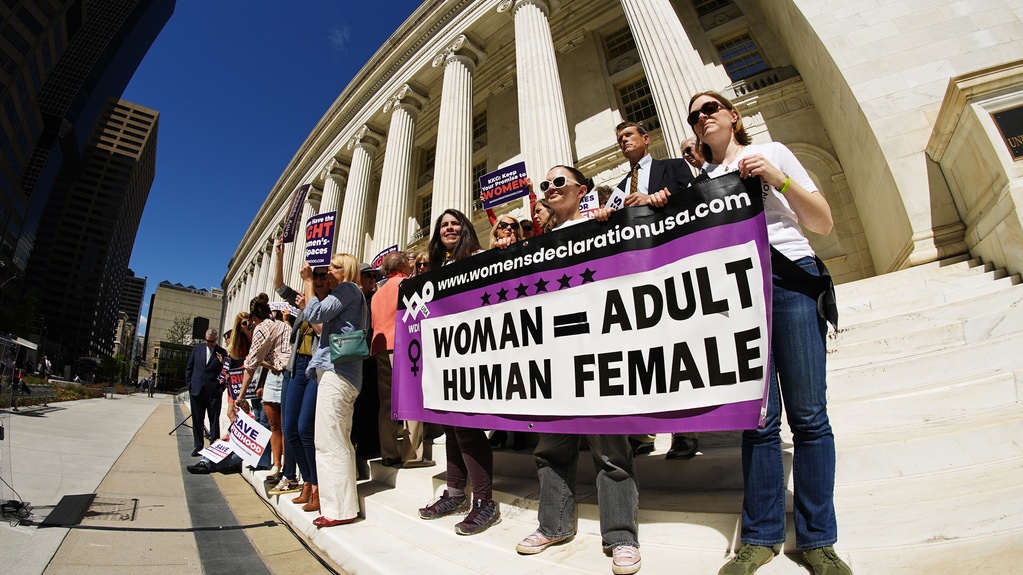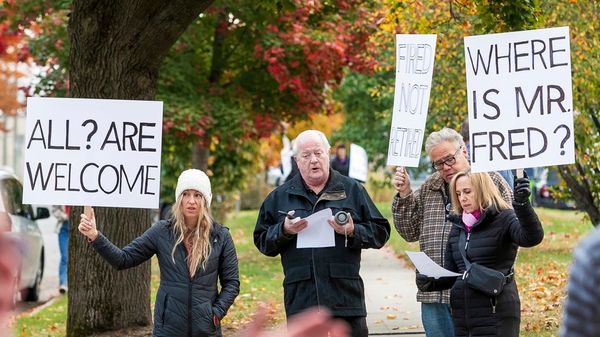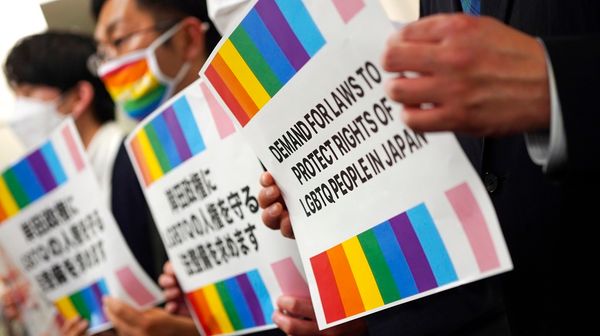
May 15
Appeal Judges Voice Doubts about Ruling on Transgender Woman's Admission into Wyoming Sorority
Mead Gruver READ TIME: 2 MIN.
Federal appellate court judges expressed doubt Tuesday about whether they could rule on a transgender woman's admission into a University of Wyoming sorority or if a lower court should continue to hear the case.
The admission of Artemis Langford into the Kappa Kappa Gamma sorority prompted a lawsuit from six other sorority members last year. After hearing from both sides in the case, the three-judge U.S. 10th Circuit Court of Appeals took the arguments under advisement without ruling.
The case at Wyoming's only four-year public university has drawn widespread attention as transgender people fight for more acceptance in schools, athletics, workplaces and elsewhere, while others push back.
In their lawsuit, the six current and former members of the Kappa Kappa Gamma sorority chapter in Laramie, Wyoming, challenge Langford's admission by casting doubt on whether sorority rules allowed a transgender woman.
An attorney for the sorority sisters told the judges Tuesday the national sorority council was unfair to sorority members by changing who could belong. However, the bulk of the judges' questions and remarks to attorneys focused on whether the case was even ripe for appeal.
Last summer, U.S. District Judge Alan Johnson in Cheyenne dismissed the case without prejudice in a ruling that suggested the lawsuit could be refiled in his court. That alone should forestall appeal, attorneys for the Ohio-based sorority argue in court documents.
Appellate Judge Carolyn McHugh expressed openness to that argument.
"It seems to me it's not final," McHugh told the sorority sisters' attorney, May Mailman, at the outset of Tuesday's oral arguments.
Mailman told the judges the case was sufficiently resolved in district court to allow appeal. But appellate Judge Richard Federico voiced similar doubts.
"The district court is offering you a lifeline," he told Mailman.
Mailman argued that by allowing transgender women into the chapter at the university, the national sorority council and president violated their obligation to sorority members to faithfully follow sorority bylaws. State law in Ohio, however, gives the volunteer board for the private, Ohio-based organization wide leeway to define terms in those bylaws, including who's a woman, argued Kappa Kappa Gamma attorney Natalie McLaughlin.
A court may get involved only if such an interpretation is unreasonable or arbitrary but that wasn't the case, McLaughlin added.
The arguments drew a handful of demonstrators outside the federal courthouse holding signs that read "Save Sisterhood" and "Women have the right to women's only spaces."
"We shouldn't have to say 'Here's why I need my women's space.' Women's spaces should be protected, period," Mailman said at a news conference after the arguments.
The argument that a court should be able to tell a private organization how to define a woman flies in the face of conservative skepticism about big government, the Wyoming LGBTQ+ advocacy group Wyoming Equality said in a statement.
"They are arguing against the right of organizations to determine their own membership," Director Sara Burlingame said. "I am optimistic that the 10th Circuit will agree with Judge Johnson."
The sorority sisters' lawsuit against Kappa Kappa Gamma and its president, Mary Pat Rooney, claimed Langford made them feel uncomfortable in the sorority house. Langford has been dropped from the lawsuit on appeal.







